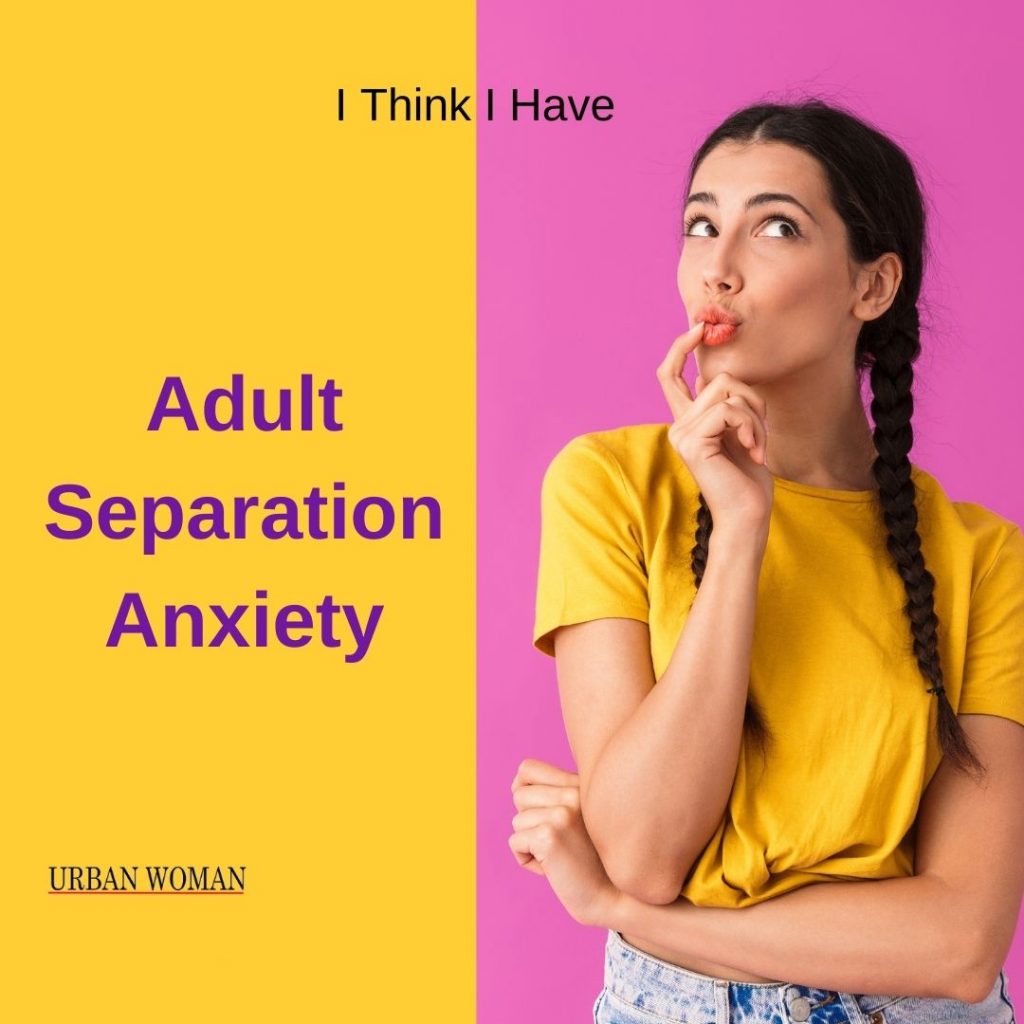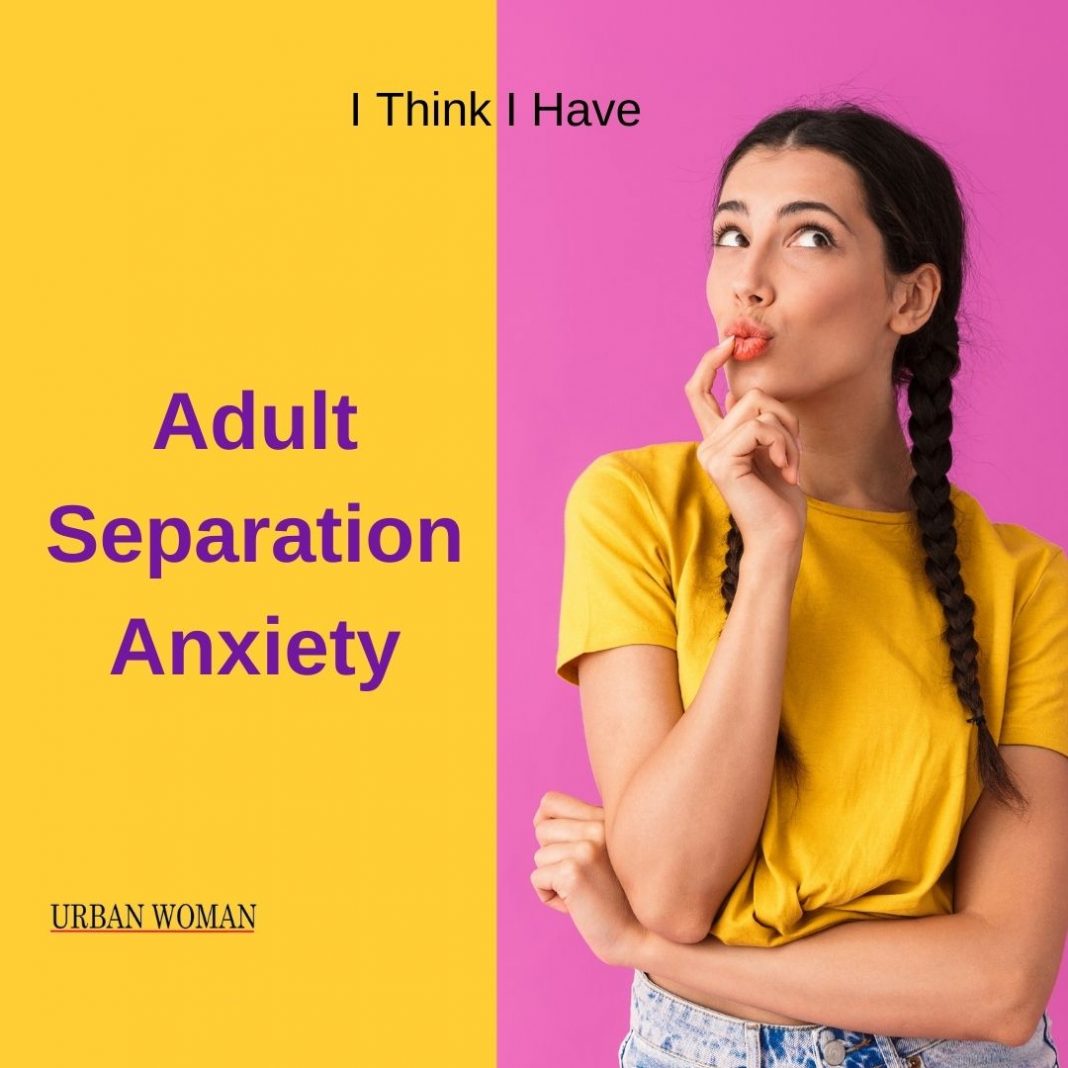When we think about separation anxiety, we tend to imagine young children. Most people have seen children under three sobbing and clinging to their parents while being dropped off at daycare or a play date and we understand that this is a normal part of growing up. But because most young children outgrow this developmental stage, it’s easy to assume that separation anxiety is quickly left behind in childhood, along with a fear of the dark and monsters under the bed.
However, it might surprise you to know that separation anxiety can follow you well into adulthood! In fact, many adults are struggling with undiagnosed separation anxiety and they have no idea! Studies also show that women are overwhelmingly affected by adult separation anxiety and this condition is diagnosed more often in women than in men. So, in this article, we’ll learn more about the symptoms of adult separation anxiety and what you can do if you’re struggling.

Article Content
What is Separation Anxiety?
As you’ve probably noticed, the term “separation anxiety” is pretty self-explanatory. We use this term when referring to excessive or significant distress that someone experiences when separating from another person. When separation anxiety occurs in children, it’s usually when a child is saying goodbye to a parent, babysitter, or another caregiver. Even if they are only separated for a short time– such as an afternoon at pre-school– the separation can trigger severe anxiety for a child.
Separation anxiety is problematic because it can lay the groundwork for anxiety disorders later in life and prevent children from developing a healthy sense of self. Separating yourself from your parents is an important part of early childhood development; when children learn to identify themselves as an individual, separate from their parents, they are able to develop their own unique personalities and identities. This in turn enables them to move through the world as secure and well-adjusted individuals. Children with separation anxiety struggle to meet this developmental milestone and this can create a number of problems for them later in life, including– you guessed it!– adult separation anxiety.
Adults who struggle with separation anxiety often have this problem because of insecure attachments during their childhood. If a child feels abandoned, neglected, or brushed aside in early childhood, they are often unable to develop a healthy relationship with the normal, everyday separations we all encounter in life. As a result, they may develop an irrational fear of any form of separation. For example, a child who has been abused or neglected might worry that their parents will leave them forever when they drop the child off at school. If their parents are late to pick them up for school, they might fear that their parents are dead or have abandoned them. Children who grow up with these unresolved fears will ultimately become adults with separation anxiety.
What Are The Symptoms of Adult Separation Anxiety?
As is the case with all mental health disorders, symptoms of adult separation anxiety can vary from person to person. However, there are a few universal symptoms that are likely to be present in most people. These symptoms include:
- Excessive anxiety when saying goodbye to a partner, child, or friend for a short time
- Consistently fearing the worst possible outcome whenever you are separated from loved ones– (for example, worrying that your loved one has died unexpectedly or abandoned you because they suddenly hate you)
- Being reluctant to let your partner, child, or friend out of your sight for routine separations such as work or school
- Excessive fear of abandonment
- Extreme jealousy with friends or romantic partners
- Controlling behavior towards children, friends, or partners– (this might manifest as an obsessive need to know where your loved ones are at all times so you can be certain they are alive and unharmed)
Many adults with separation anxiety are unwilling or unable to acknowledge their symptoms but their symptoms are often readily apparent to loved ones. If you are in a relationship with someone who has separation anxiety, you may feel smothered or concerned that they are being unnecessarily controlling. You may also feel drained and frustrated if you find yourself being required to reassure them constantly.
However, it’s important to acknowledge that one of these symptoms in isolation is not necessarily indicative of separation anxiety. Our brain’s job is to keep us safe and, because we know the world is a dangerous place, it’s normal for us to worry about the wellbeing of our loved ones. So, if your wife or mother frequently asks you to text her when you get home safely, that doesn’t necessarily mean that she has separation anxiety or that she is experiencing problems with her mental health.
But if someone you love is exhibiting all of these symptoms on a regular and intense basis, it’s highly likely that they are struggling with separation anxiety. And if they are struggling, it’s important to get help from a licensed mental health professional.
How Can I Get Help For Adult Separation Anxiety?
Separation anxiety can have a profound negative impact on your mental health and your relationships, so it’s important to seek help as soon as possible. Treatment for adult separation typically involves addressing one’s anxiety and attachment issues. In many cases, that might require you and your therapist to reflect on your childhood together so you can pinpoint the source of your attachment anxiety.
But if you’re nervous about taking the plunge and diving right into therapy, you might want to start with a self-assessment that you can take in the comfort and privacy of your own home. Mind Diagnostics offers an Adult Separation Anxiety test that is free, confidential, and self-guided. As you progress through the test, you will be presented with a short series of symptoms and asked about the severity and frequency with which you experience these symptoms. When you complete the test, you will receive a breakdown of your results and some information about your next steps.
These resources will often include contact information for a therapist in your area along with information about the type of treatment that may be helpful for you. If traditional, in-person therapy sessions are uncomfortable or inaccessible for you, you should know that online therapy is also an option. Online therapy empowers you to connect with a licensed mental health professional from the convenience of your phone. In short, it’s just like traditional therapy– only more convenient! So, if you’re nervous about seeking help for your mental health, online therapy can provide you with a range of more accessible options.
Living with separation anxiety can be scary, but therapy can empower you to create a bolder, more confident life. So, don’t hesitate to reach out for help today!
Read Also: How To Know If Your Child Has Separation Anxiety

The Urban Woman Magazine Editorial Team is made up of seasoned writers and editors who have a keen eye for detail and a passion for all things urban. We strive to create fresh, original content that appeals to the modern woman. Our mission is to provide a platform for women to share their stories, experiences and opinions on various issues affecting their lives.

